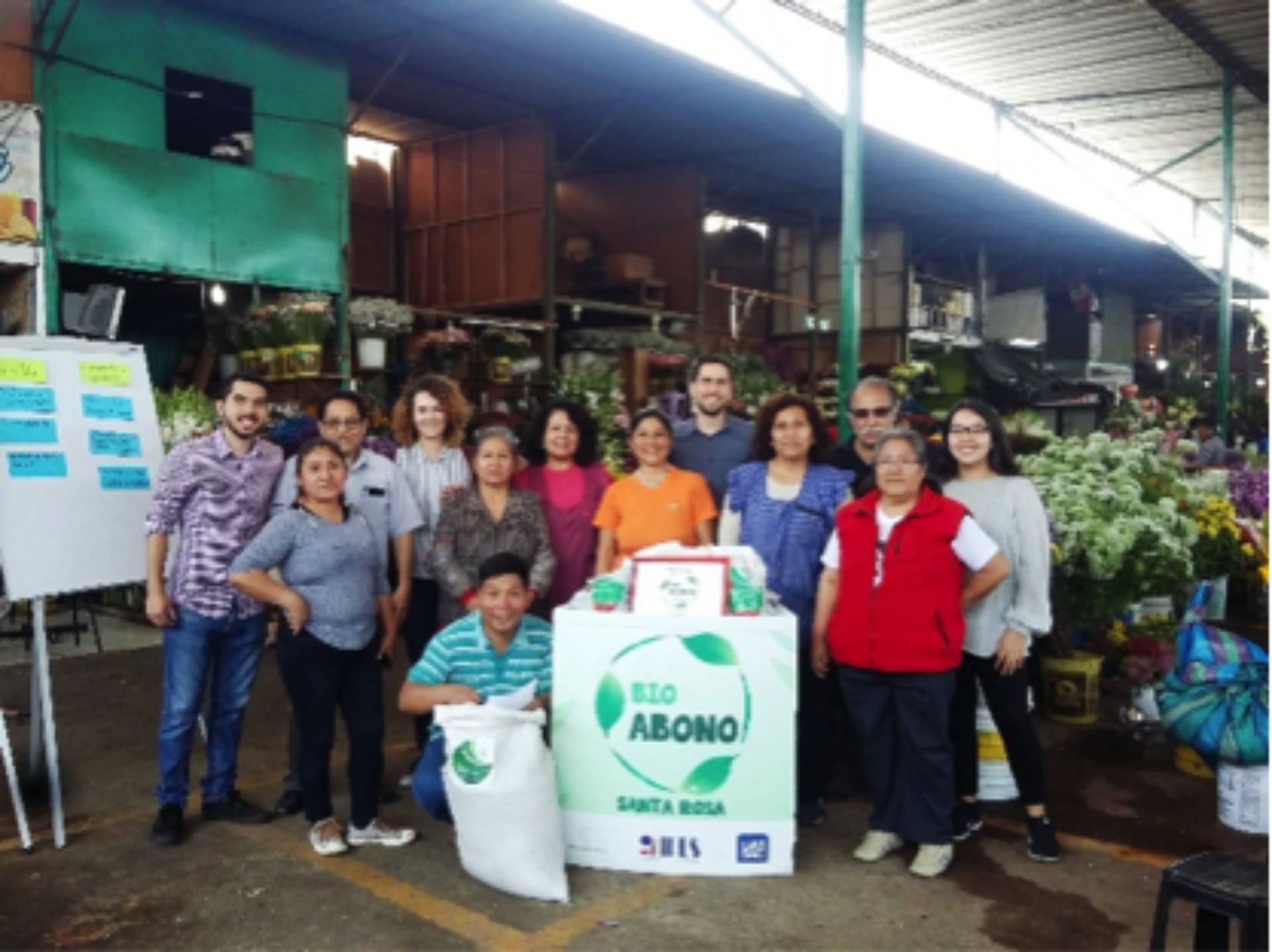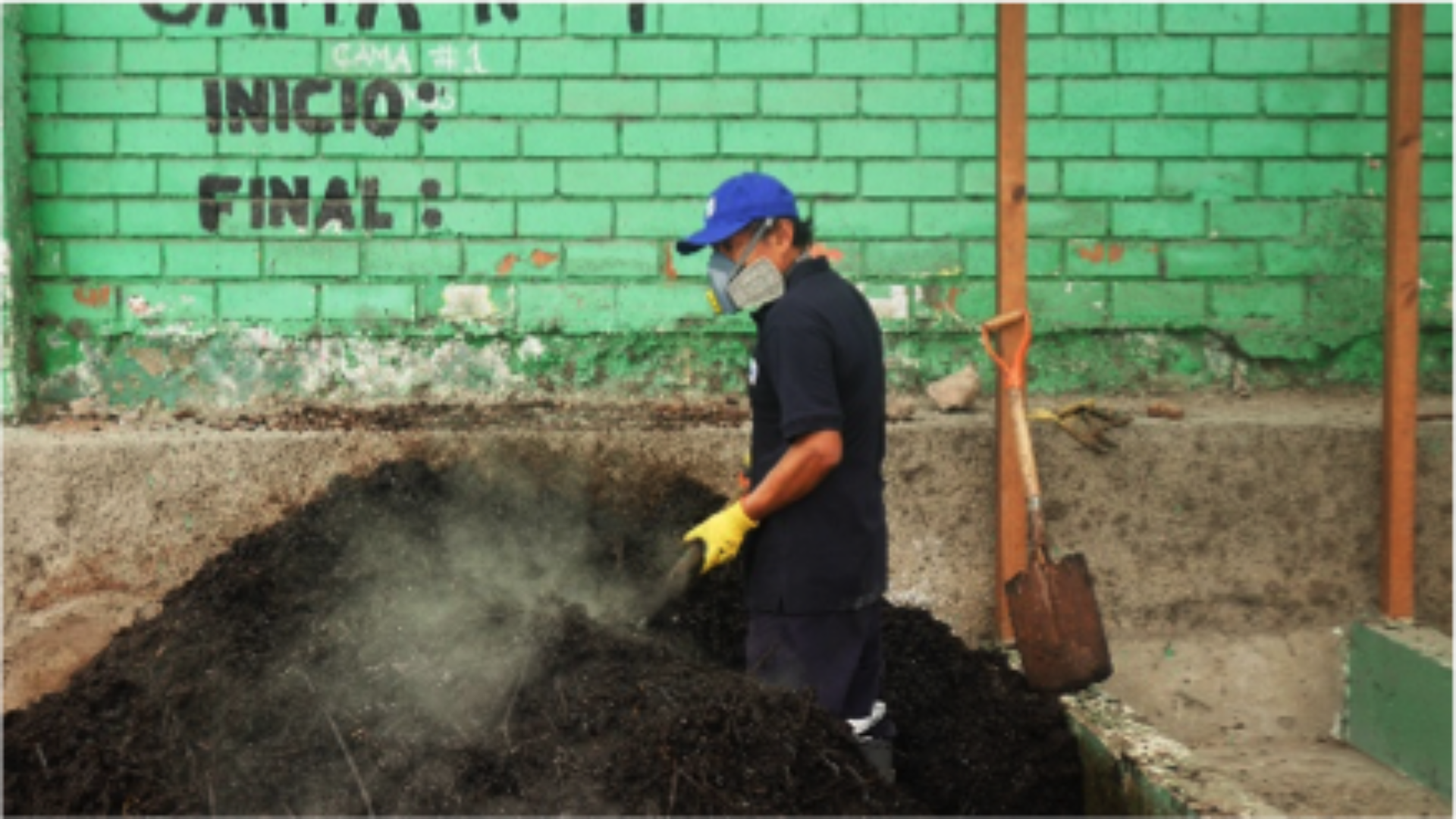
One down, many more to go
Every city around the world is faced with a solid waste management problem. Most often, developing countries are faced with an unaware culture lacking important knowledge on proper waste disposal and its associated impacts. The city of Lima is divided into more than 40 district municipalities, each with their own budgets and priorities. This type of governmental setup results in each district varying on their policies, including their waste management.
A particular case in the central district of Rimac became a problem for LAMSAC - a private concessionaire that manages and maintains streets and highways in Lima - who maintains Via Evitamiento a road within this district. Via Evitamiento is home to the Santa Rosa Flower Market, a market where a great variety and quantity of flowers are sold. The market sells an array of products from plants to specialized flower arrangements, these goods produce an enormous amount of waste (approx. 2,000 kg/day) mostly made up of biodegradable plant by-product. This waste was being disposed onto the Via Evitamiento. Since the road belongs to LAMSAC, the municipality is not responsible for the clean up, letting an excessive amount of waste accumulate.
This plethora wasted resulted in the Planta de Tratamiento y Producción de Abonos (PTPA), a treatment and fertilizer production plant that was setup by LAMSAC, together with the members of the market as a way to not only reduce environmental pollution and waste disposal on public roads, but to offer an alternative income for the members of the market. It's simple, the organic waste that comes out of the market is picked up and taken to the adjacent plant where it is processed into compost and commercialized.
Yes, this is a great and innovative solution to waste management. Not only did it solve the market’s waste issue, it boosted the company's social responsibility image. But it hasn't been easy. The ultimate goal to clean up the street was reached, but how can sustainability be ensured? The issue at hand, lies in the underlying components that make up the dynamics of the plant and the market itself, meaning the waste plant cannot prosper unless the market does too.
The PTPA solved only one of the many waste related problems in Lima. In order to assure their survival, the PTPA now have to prolong their profits and find a sustainable and lasting market to sell the compost to. The committee in charge of the PTPA needs to find the proper organizational and budgeting workflow in order to financially stay afloat, while creating an incentive for the Flower Market workers to collaborate with them.
The shortcomings that the PTPA is presented with, are a direct result of poor planning, the members of the market were unfamiliar with any sustainable waste management techniques until the project was launched in 2014. The initiative has great potential to be successful and meet its goals, but it will take prioritizing and planning for the plant to be sustainable.
Like most ideas, on paper it seems perfect but once executed, issues began to arise. As my mandate comes to an end and I start moving into a career in development, I often reflect on this project and its hardships of prolonged development and sustainability, which can not be met without the proper planning and execution.


